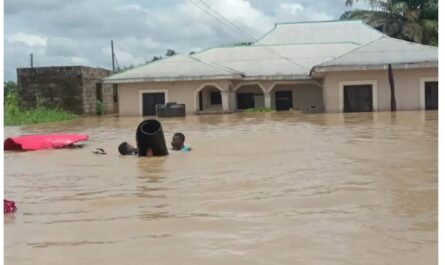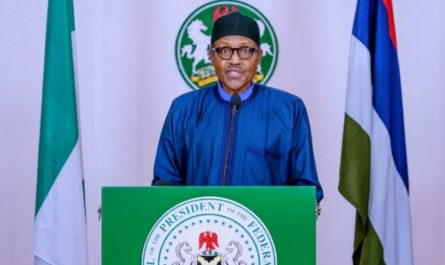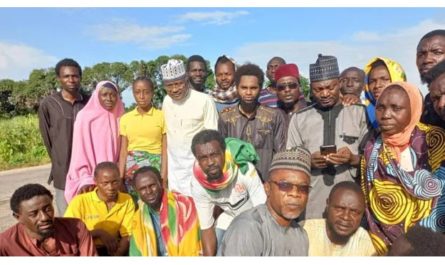Claims of systematic exclusion of the Igbos in the social, economic, and political spheres of Nigeria have continued to create disgruntlement within the ethnic group. The vulnerability resulting from their inability to access certain rights, resources, privileges, and opportunities at the same equitable level as other ethnic groups has continued to be a source of concern and motivated a continuous agitation for secession so that the indigenous group could become a nation of its own.
Some people argue that the Igbos are not marginalized and it is incorrect to assume they are. There is however overwhelming evidence to dispute this fact. We will look at some of them.
Post-Biafran War Struggles
It is estimated that the loss of Igbo lives during the Nigerian Civil War from 1967 – 1970 was over three million. The then head of state, Yakubu Gowon, is heavily criticized for not equitably dispensing his threefold post-war agenda of rehabilitation, reconstruction, and reconciliation.
There were no deliberate efforts to adequately reconcile the Igbos with other ethnic groups and ensure that they were rehabilitated back into society. The government also ignored on a very large scale, infrastructural reconstructions that would have enhanced the development of the region.
Prior to the war, the Nigerian government created twelve states out of the three previous regions and ‘lumped’ all Igbos into one East Central State. This move was largely interpreted as an attempt to landlock, isolate and disempower the Igbos from the benefit of the seaport and oil reserves of the adjoining Rivers State. This move further frustrated the reintegration of the Igbos back into society after the war.
Properties belonging to the Igbos were confiscated by others during the war and never recovered. The Nigerian government never assisted in reclaiming these landed assets. In the Nigerian Civil Service, Igbo workers were never reinstated or even allowed to apply for available positions and once again, the Nigerian government turned a blind eye to the plight of this ethnic group.
Many agree that the “No victor, No vanquished.” declaration by the then Head of State was a fallacy and the post-war widescale discrimination of the Igbos was evidence that the Igbos were actually vanquished after the war.
Educational Disenfranchise
Another shocking injustice against the Igbos occurs in the Nigerian educational sector. A look into the admission process of the Unity schools will explain better. Unity schools were created as bastions of pride, privilege, and pedigree. They upheld the highest academic standards of secondary education and offered a platform to expose children to sports, arts, and technology. Cross-cultural and international awareness, tolerance, and existentialism were also the stock-in-trade in these schools.
The attitude, mindset, and behaviour of children who were products of these schools were quite similar across the board. They largely exhibited nationalism, were detribalized, and above all, academically stood out amongst their peers. Many of them to this day, occupy prestigious offices across Nigeria and even in the world because of the quality of education they were provided within the Unity schools.
The first set of Unity schools, Kings and Queen Colleges, were established and run by the British colonial government as far back as 1909 and 1927 respectively. Several more would be opened and spread around the country in years to come making efforts to emulate the exact same standards and modus operandi as the original schools.
As time went on, the consideration for admission into these schools took a sinister tribalistic turn. Once again, Igbo children were left holding the short end of the stick to this day.
The Federal Ministry of Education which monitors the Unity schools introduced a quota system of admission decades ago to determine which child got admitted into the Unity schools. First was segregation of children by gender. Males had higher cut-off marks than females. Next, the quota system then further segregated the children by their state of origin.
The total maximum obtainable score for the common entrance examinations is 300. Under the quota system, as of 2022, a child from Abia, Anambra, or Imo with a score less than 130 points, would not gain admission into a Unity school in Nigeria. But a child from the northern states like Kebbi, Taraba and Zamfara can gain admission with just 2 or 4 marks depending on whether they were female or male.
Many bright Igbo children have lost their fundamental right to education because of this legalized bigotry favouring their peers who are unqualified simply because of the part of the country they come from. It is ironic that the same Igbos who were left in absolute penury and their region infrastructurally underdeveloped after the Nigerian civil war, are the same ethnic group discriminated against as having educational prowess above the Northern and other regions who have enjoyed full privileges from the Nigerian government from their inception till date.
Political Relegation
Pre and post the Nigerian Civil War, there were several incidents that evidenced the marginalisation of the Igbos in Nigeria’s corridors of power. The Biafran war itself was borne as a result of the angst of the Igbos from the total disregard of the outcome of the Aburi Accord which in broad terms, changed the Head of State from Supreme Military Commander (SMC) to Commander In Chief (CIC), gave regions control over their internal affairs, and concurrence of each region was required for any decision affecting it.
After the war, many are of the opinion that the Igbos are still to this day, either relegated or completely ignored in political appointments and decision-making within Nigeria. In the Nigerian military, airforce, navy and police, Igbos were not allowed to enlist for a number of years and the top military officers in the armed forces lacked representation from members of the Igbo tribe.
Since the end of the war till date, under either military or civilian rule, no member of the Igbo tribe has ever been president of Nigeria. Only one, the late Alex Ekwueme, became a vice president between 1979 and 1983.
The disdain and denial of Igbos to leadership positions is not exclusively a domestic phenomenon but also has been displayed on a global scale. One clear example of this happened in 1985 when upon the resignation of the Secretary General of the Organisation of African Union, several other African presidents rooted for a highly competent Dr. Peter Onu, the Acting Secretary General and most senior official, to succeed his predecessor. The then military president of Nigeria, Muhammadu Buhari did not support Dr. Onu’s appointment but instead, threw his full weight into supporting and voting for Idi Oumarou, a candidate from the Republic of Niger, a totally different country.
In his tenure as a civilian president, Buhari would attempt to deny this incident through his media team but the public recollection of what transpired has not been successfully swayed to think otherwise. This is compounded by the fact that even under his return to democratic rule, many key appointments in his administration were perceived as nepotic and tribalistic because several qualified persons were overlooked in favour of people from the president’s neck of the woods who held lower qualifications or expertise.
Evidence of marginalisation also exists in the creation of South East states. Five of the six geopolitical regions of Nigeria have a total of six states each. The South East, home to the Igbos is the only region with the least amount of states. It only has five states.
This strategically loop sides the South East region into collecting the least amount of revenue from the Federal Government. It almost seems like the plot to geographically disenfranchise the region hasn’t ceased since the creation of twelve states by Yakubu Gowon in the year 1967. All other regions are allocated more revenue that the South East Region.
Another determinant of lower revenue allocation to the South East are the outcomes of population censuses conducted in Nigeria. Overwhelming reports of improper documentation and falsified records continually trail the National Population Commission.
The South East states are believed to have their demographic populations underestimated in every census. Physical occupation per square mile is arguably more in the South East that in Northern Nigerian regions where vast spreads of land are visibly less occupied mile after mile
Population records have historically made the South East appear to have lesser occupations than they probably have. Lower numbers mean lower prioritisation for revenue allocation purposes.
Conclusion
Whatever arguments are put up to deny the marginalization of the Igbo community, one thing is quite clear. Continued denial of the concerns of ethnic groups and attempts to relegate their grievances to obscurity has and may continue to threaten the existence of Nigeria as one total entity.
Daring to call for cessation from members of this tribe has emboldened the spur of calls from several other ethnic groups springing up to publicize the injustices they face as well as demand fairer existential conditions as well as demanding their rights from the government of Nigeria.
There is growing interest, not just within Nigeria, but at international level, about transparency at all levels of leadership particularly as it pertains to marginalized groups of people. Dismissal of such claims are counter productive and will only incite disenchantment.
At all levels of governance, leadership must be committed to engage with marginalized people and create solutions that will foster unity and harmony.




